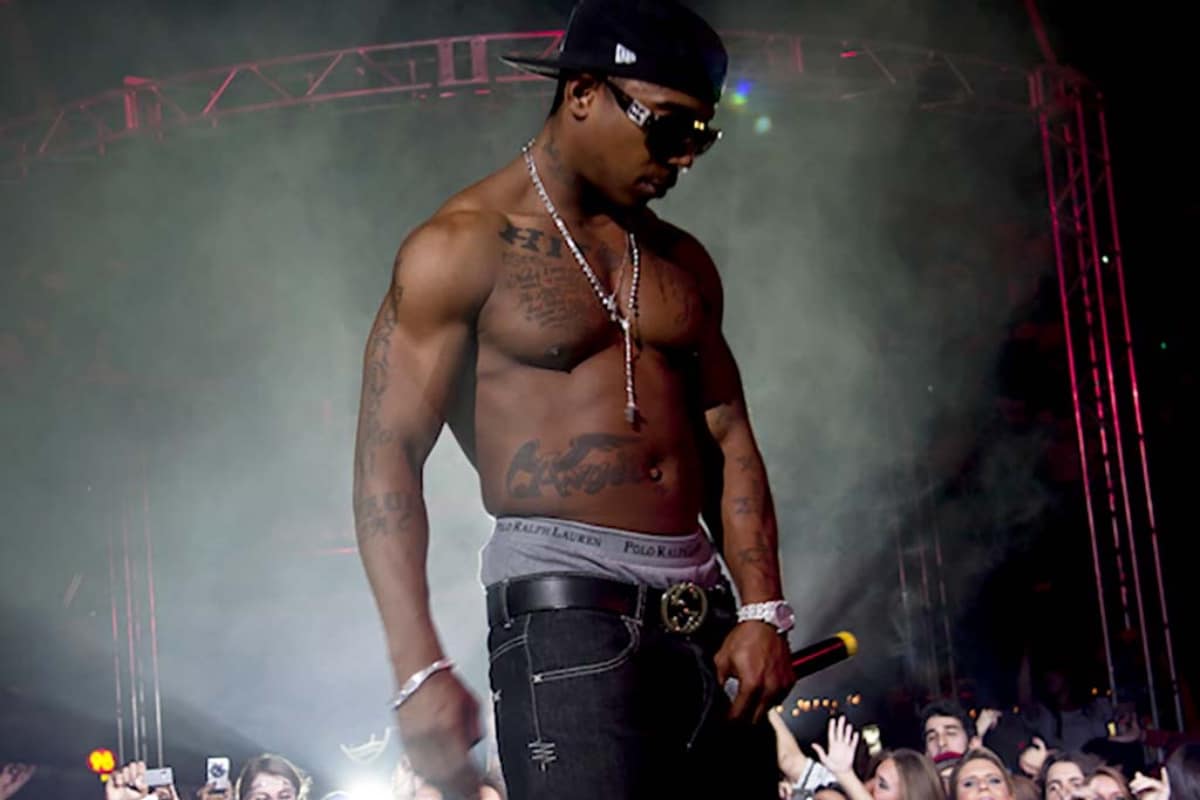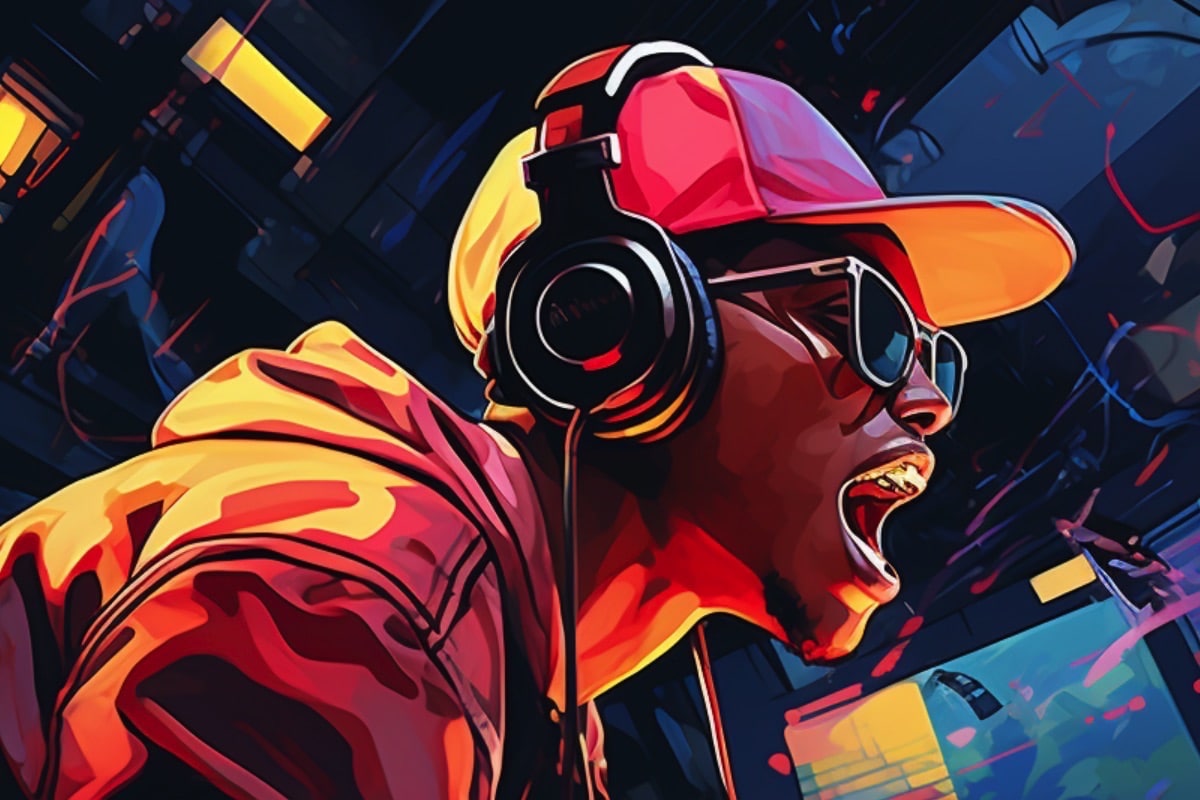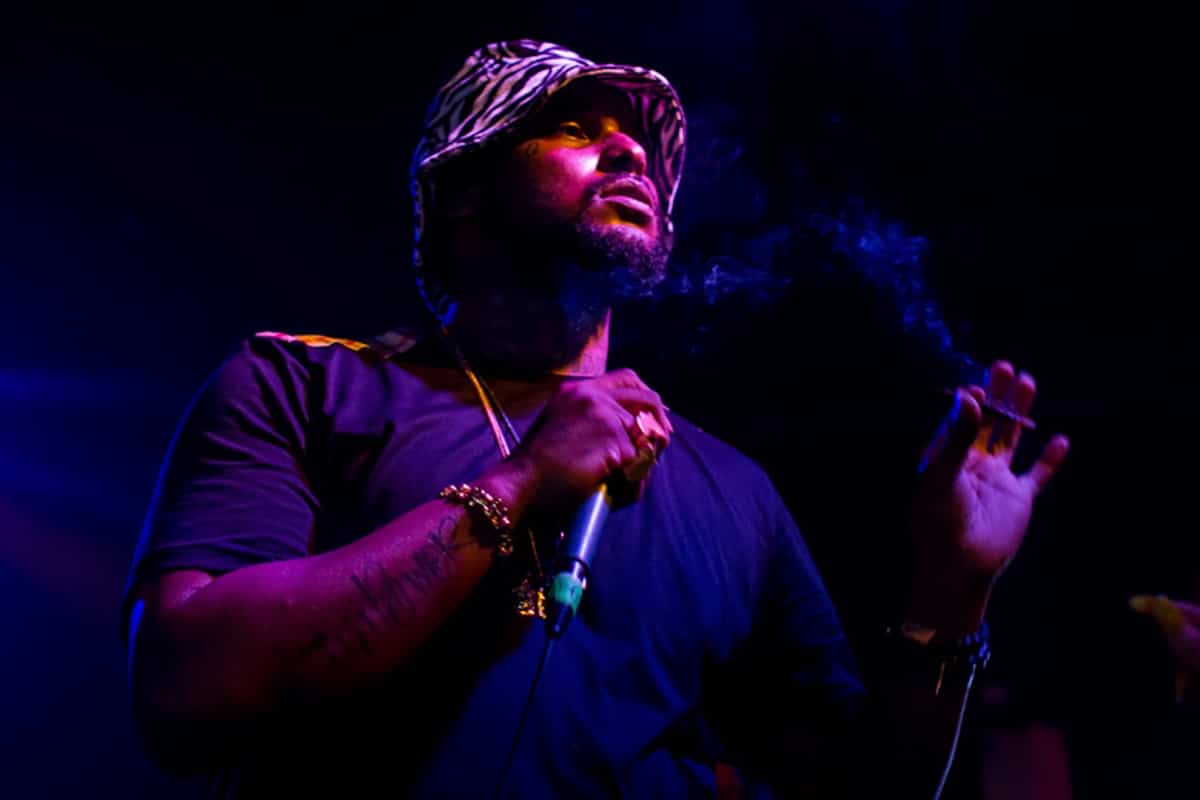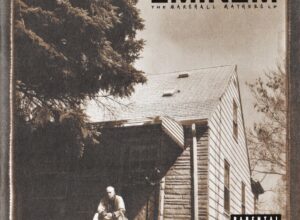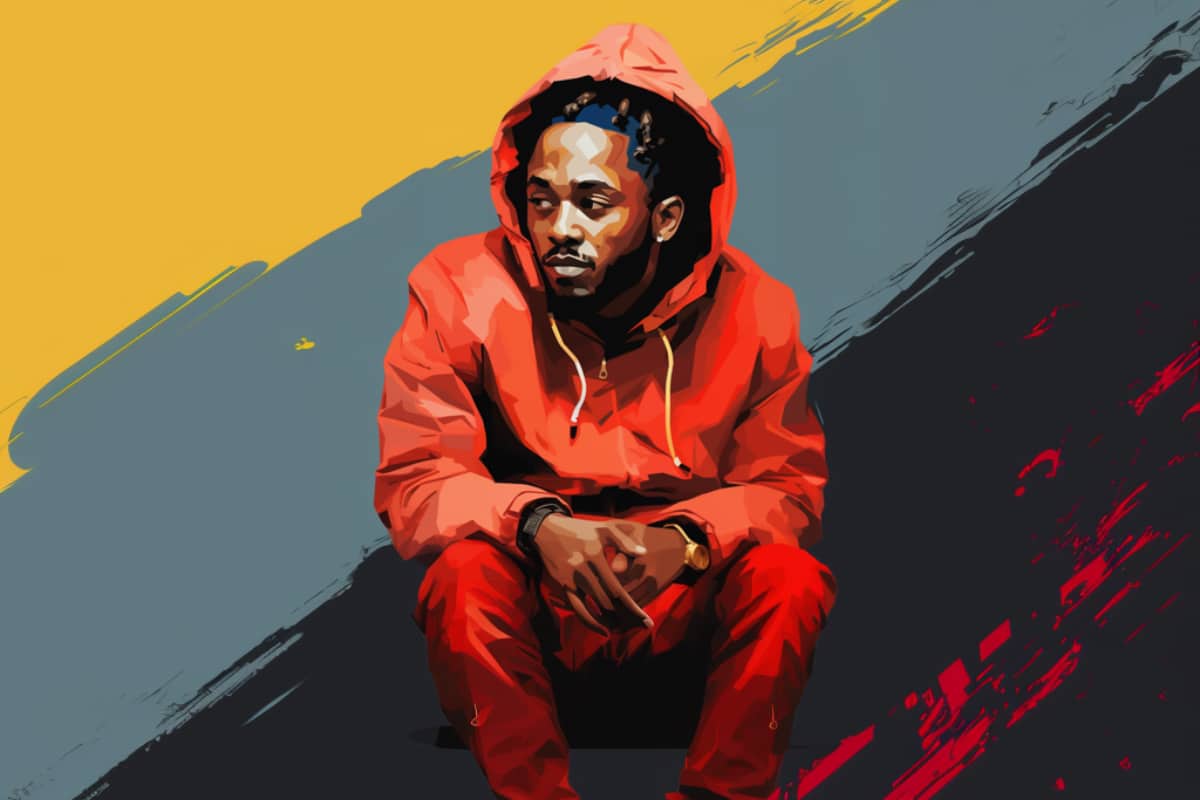The 2000s was a tumultuous time for the rap game. The new decade started with the kings like DMX, Eminem and Jay-Z all staking their claim to the crown. The underground vs. commercial divide, which began in the late ’90s, began to widen even further, highlighting the struggle of artists like Ice Cube and Method Man to maintain authenticity while gaining mainstream success. While the first half witnessed some of the biggest rap superstars the industry had ever seen, the second half was dominated by the internet and the challenges on how to evolve accordingly or get left in the ’90s.
More importantly, Andre 3000’s chilling prophecy of a south-takover at the 1995 Source Awards would ring true just a decade later. As the East Coast and West Coast began to lose their steam, the South began their takeover; slowly at first, but by the end of the decade, it was a known fact that they were running the game and there was nothing anyone could do about it. Out of this situation emerged some of the greatest rappers to ever touch a mic in the 00s.
So let’s get into it. From underground stalwarts like MF DOOM and El-P to Billboard superstars, Eminem and Jay-Z, and Southern rap giants like T.I. and Ludacris, here are the top 50 best 2000s rappers.
50 Juvenile
Essential listening: Juve the Great (2003)
Juvenile never reached the same legend status as his Hot Boys co-star Lil Wayne, but he still had his shining moments through the 2000s.
49 Eve
Essential listening: Scorpion (2001)
After her multi-platinum debut in 1999, it was obvious that Eve would be a chart-topping titan of the new decade. She set the stage for those that followed, like Nicki Minaj and Rapsody.
48 Juelz Santana
Essential listening: What the Game’s Been Missing! (2005)
Dissing his rivals, threatening his enemies, and spitting the occasional raunchy bar, Santana’s pen game followed the standard New York formula, but it’s his delivery where the MC thrived.
47 Fat Joe
Essential listening: Jealous Ones Still Envy (J.O.S.E.) (2001)
The legendary Bronx rapper could yell into the mic on one track then unleash his romantic side on the next, carrying the explosive energy of Terror Squad through to the 2000s, he struck that perfect balance between glamorous pop appeal and the hardcore sound of New York.
46 Gucci Mane
Essential listening: The State vs. Radric Davis (2009)
The impact of Gucci Mane on the 2000s can’t be defined using traditional methods, as his influence on the Atlanta rap game was far deeper than just surface metrics.
45 Snoop Dogg
Essential listening: R&G (Rhythm & Gangsta): The Masterpiece (2004)
There’s no doubt that Snoop reached his peak in the ‘90s, but let’s not forget some of the classic material he dropped through the next decade.
44 Ja Rule
Essential listening: Pain Is Love (2001)
Ja Rule is remembered now as the rapper who lost to 50 Cent, but in his prime, he was a mainstream hit-making titan positioning himself as a contender for Grammy Awards. Album after album, the Queens-born MC flooded the charts with pop rap hits like “Always On Time” and “Mesmerize”, proving his consistency by dropping a project a year from ’99 to ’04.
43 Xzibit
Essential listening: Man vs. Machine (2002)
Within the rap music scene through the new millennium, Xzibit dropped the gritty sound that brought him to fame, instead joining forces with Dr Dre to embrace the head-bopping grooves of G-Funk.
42 Lil’ Kim
Essential listening: The Notorious K.I.M. (2000)
For the doubters who thought Lil’ Kim would be nothing without Biggie Smalls, she spent a whole decade proving them wrong by inviting the Biggie comparisons when she dropped The Notorious K.I.M. in 2000.
41 Rick Ross
Essential listening: Deeper Than Rap (2009)
There’s a reason Rick Ross became a superstar off his first ever single “In Da Club”, his career started simply because there has never been an MC like him.
40 Blu
Essential listening: Below the Heavens (2007)
Breaking onto the scene near the end of the decade, Blu didn’t need long to prove himself one of the most promising MCs in the West Coast.
39 Killer Mike
Essential listening: Monster (2003)
Featuring on OutKast’s Stankonia and Jay-Z’s The Blueprint 2, Killer Mike was one of the hottest rappers to emerge in the South in the 00s before he had an album to his name.
38 Lloyd Banks
Essential listening: The Hunger for More (2004)
Reigning over the mainstream as part of G-Unit, Banks brought an aggressive demeanour and razor-sharp pen game to every verse.
37 Fabolous
Essential listening: Street Dreams (2003)
After showing up with a legendary freestyle performance alongside N.O.R.E. in 1998, the 21-year old was subsequently signed to DJ Clue’s Desert Storm Records and given a chance to shine.
36 Beanie Sigel
Essential listening: The Truth (2000)
Dropping verses here and there on Jay-Z projects, it wasn’t until 2000’s The Truth that Beanie Sigel proved he could hold his own without any help from Hova.
35 Jean Grae
Essential listening: Attack of the Attacking Things (2002)
One of the most underrated rappers of all time, Jean Grae crowned herself queen of the underground with Attack of the Attacking Things. Her abstract sense of lyricism was too bizarre for the mainstream, but for underground fans, she was a lyrical genius.
34 Brother Ali
Essential listening: Shadows on the Sun (2003)
What Brother Ali lacked in mainstream hits, he made up for in cult classics. From the laidback, summery vibes of Shadows on the Sun to the political anthems of The Undisputed Truth, Ali had the clever pen game to tackle any issue, and the charisma to always make it sound entertaining, cementing himself as one of the greatest underground rappers of all time, making him a prominent figure on the list of the best rappers.
33 Nelly
Essential listening: Nellyville (2002)
On “Excuse Me Miss,” Jay-Z rapped “Only dudes movin’ units – Em, Pimp Juice and us.” Rap fans forget, at one point in time, the only rapper who was touching Nelly’s numbers was Eminem, Hov was still a couple hundred thousand units away.
32 Tech N9ne
Essential listening: K.O.D. (2009)
Tech N9ne flows so fast you would have to play his tracks in slow motion to catch every bar. A veteran of chopper rap and a technical mastermind on the mic, Tech became a Midwestern sensation in the 2000s thanks to his superhuman speed, spitting dozens of syllables in a few short bars without a single stutter to ruin his flow.
31 The Game
Essential listening: The Documentary (2005)
From the multi-platinum success of The Documentary to his relentless run of mixtapes, The Game was a force who couldn’t be stopped in his prime. Devastating songs like “300 Bars N Runnin” showcased his natural ability to spit insults, earning fame in the 2000s with hits that defined a generation, whilst also delivering some of the best diss tracks of all time towards 50 Cent, G-Unit, and anyone who stood in his way.
30 Cam’ron
Essential listening: Purple Haze (2004)
Ever since he came into the rap game, Cam’ron has been spitting with the same confidence and dismissive attitude. Like he was doing all this shit for fun, like rap was just a hobby, like the whole thing was too easy for him, a real pioneer amongst this list of 2000 rappers.
29 Talib Kweli
Essential listening: Train of Thought (2000)
Talib Kweli entered the new millennium as a critical darling and figurehead of the underground rap movement. Fresh off the release of Mos Def & Talib Kweli Are Black Star, which established him and Mos Def as two Brooklyn spitters championing the Rawkus Records independent era.
28 DMX
Essential listening: The Great Depression (2001)
Although his run of multi-platinum classics in the late ‘90s was unbeatable, there’s no doubt that DMX was still one of the hottest rappers around in the 2000s. With his barking delivery, infectious adlibs, and bombastic choice in production, the Yonkers rapper had a formula that was impossible to get wrong.
27 Twista
Essential listening: Kamikaze (2004)
One of the fastest flowing rappers in history, Twista was king of chopper rap before chopper rap was even a term. His tongue-twisting bars and technically precise verses helped him skyrocket to mainstream acclaim.
26 Styles P
Essential listening: A Gangster and a Gentleman (2002)
If there’s one thing you can definitely say about Styles P during the 2000s, that man was working! While The LOX rapper didn’t achieve the same mainstream crossover or commercial impact as a lot of his peers during the decade, he made sure he was delivering quality music to his fans on a consistent basis.
25 Bun B
Essential listening: Trill (2005)
There were few rappers who worked as hard as Bun B during the 2000s. Of course, you had the Lil Wayne’s, the Gucci Mane’s, and the Currensy’s grinding hard as ever. But where they differed from the UGK rapper is that, outside of a strong work ethic and the drive to be the best (artistically and/or commercially), Bun was doing it for Pimp C.
24 El-P
Essential listening: Fantastic Damage (2002)
While El-P (and Killer Mike) would enter a whole new level of mainstream recognition and accolades in the 2010s with Run the Jewels, the Brooklyn-born MC producer was already a certified underground hero when the 2000s began, much like rappers from the 80s and 90s. As a solo artist, what El-P lacked in quantity, he made up for it with quality releases.
23 Busta Rhymes
Essential listening: The Big Bang (2006)
It was in the 2000s where Busta really cemented his legacy as one of the most exciting and energetic hip hop artists of all time. The Brooklyn-born MC proved his versatility with R&B duets with Mariah Carey (“I Know What You Want”), to collaborating with Q-Tip (“You Can’t Hold the Torch”), to making club bangers (“Pass the Courvoisier, Part II”), to rapping off against Jadakiss and Lil Wayne (“Respect My Conglomerate”), to crafting radio smashes with Swizz Beatz (“Touch It”). Busta Rhymes was everywhere, adding his trademark energy and rapid-fire flow to any rapper who needed it.
22 Aesop Rock
Essential listening: Labor Days (2001)
Listen to any Aesop verse and it shouldn’t need to be explained why he’s become an underground legend. A natural wordsmith, Aesop has the vocabulary of a thesaurus and the limitless imagination to match, rarely repeating a rhyme in projects like Labor Days and None Shall Pass, where he made each verse as cryptic and complex as possible.
21 Jadakiss
Essential listening: Kiss tha Game Goodbye (2001)
If you weren’t around in the 2000s to witness the greatness of Jadakiss’ during that decade, do yourself a favour and watch The LOX’s Verzuz battle against Dipset (why haven’t you already?!). The night was really just a case put forward for Jadakiss’ standing on everyone’s GOAT list.
20 Pusha T
Essential listening: Hell Hath No Fury (2006)
2006 was arguably the peak year for the coke rap subgenre. You had Ghostface releasing one of his best albums ever with Fishscale, you had trap music pioneer T.I. claiming the throne with King, Rick Ross breaking down the door with Port of Miami, and Jeezy dropping the follow-up to Let’s Get It: Thug Motivation 101. But one album stood tall amongst these giants, Clipse’s Hell Hath No Fury, the best coke rap album of all time.
19 Sean Price
Essential listening: Monkey Barz (2005)
Sean Price had always been an undeniable force in the underground hip hop community in the 90’s, but it was really in the 2000s that the rugged Brooklyn MC came into his own, with his two solo albums, Monkey Barzand Jesus Price Supastar being the shining examples.
18 Missy Elliott
Essential listening: Miss E… So Addictive (2001)
I’ve always found it funny how Lauryn Hill has been receiving accolades these past two decades (as she rightly should), and yet someone like Missy Elliott always manages to fly under the radar, even though she’s like a flyer, wilder version of Ms. Hill. The Virginia rapper, singer, songwriter, and producer is a truly one-of-a-kind artist who had one of the most commercially successful and artistically innovative runs in the 2000s, that’s why we named her the best female rapper of all time.
17 Young Jeezy
Essential listening: Let’s Get It: Thug Motivation 101 (2005)
During the South’s takeover in the 2000s, Jeezy was just one of many rappers from the region coming up in the game and making a name for themselves, akin to how Soulja Boy leveraged the internet to kickstart his solo career. Compared to his peers, the Snowman couldn’t flow liquid hot like Ludacris, but what he did have was a one-of-a-kind voice with captivating delivery, and an absolute belief in their every word. So if you take those qualities and combine them with true-to-life trapping tales and production from Shawty Redd, Drumma Boy and Mannie Fresh, suddenly you had Atlanta’s next superstar.
16 Black Thought
Essential listening: Game Theory (2006)
All great rappers, especially the ones who have been around for a while, go through lulls in their career where they don’t sound as like they want it anymore, but Black Thought was the most consistent rapper in the ’90s, the most consistent rapper in the ’00s, the most consistent rapper in the ’10s, and yes, he’s the most consistent rapper doing it right now. There should be not doubt in any rap fans’ mind on who the best Philly rapper of all time is, the only correct answer is Thought.
15 Ludacris
Essential listening: Chicken-n-Beer (2003)
Ludacris was one of the first rappers outside of OutKast to prove to New York that these Southern artists could really rap their asses off. Blessed with a chameleon flow and pinpoint delivery that never sounded out of pocket, Luda’s biggest strength was his versatility. Hard street shit, lyrical bars, club bangers, radio hits, he could do it all. One day he could be all over the radio next to Usher and Lil Jon (“Yeah!”), the next day he might be trading bars with New York’s finest – we can debate who had the best verse between Luda, Jada and Nas on “Made You Look (Remix).” Bottom line is that Ludacris doesn’t get the respect he deserves from rap fans, even though he’s proved over and over again that he was one of the best to do it during the 2000s.
14 Big Boi
Essential listening: Stankonia (2000)
It’s easy to underrate Big Boi, even as half of the most iconic rap duo of all time. While Andre 3000 pushed hip hop’s boundaries, Big Boi was the group’s rap traditionalist, yet far from conservative. His half of Speakerboxxx/The Love Below sounded futuristic. From the rock-tinged energy of “Ghetto Musick” to the pop perfection of “The Way You Move,” Big Boi proved his versatility and undeniable influence on the genre.
13 Scarface
Essential listening: The Fix (2002)
The ultimate summation of Scarface’s superpower is being able to take real-life tragedy and pain, and turning that into beautiful music. Over 10 years after writing “Mind Playing Tricks on Me” – one of the best rap songs of the ’90s – the Houston rapper entered the 2000s and dropped one of his best albums to date. The Fix is classic Scarface, the perfect blend of gangsta, nostalgia and sadness, with his world-weary raps and contemplative flow ageing even better in the new decade, positioning him amongst the elite rap artists.
12 Common
Essential listening: Be (2005)
Common’s 2000s were creatively dynamic. He partnered with J Dilla and Kanye for commercial breakthrough collaborations like “The Light” (Like Water for Chocolate) and the acclaimed album Be. His GOOD Music era followed, then came bold experiments with Electric Circus and Universal Mind Control. While these risks weren’t universally loved, they showcase Common’s fearless drive to push hip hop’s boundaries.
11 Andre 3000
Essential listening: Stankonia (2000)
You could leave out Andre 3000’s work on OutKast albums and he’d still make this list off the strength of his incredible feature appearances alone. There’s a reason why we crowned Stacks the greatest guest rapper of all time. His 2000s work proves he mastered any style: hardcore street rap (“Royal Flush”), smash hits (“Hey Ya!”) – even a singing album! He defied hip-hop conventions years before Kanye, paving the way for today’s boundary-pushing stars like Kendrick, Cole, Future, and Tyler.
10 Lupe Fiasco
Essential listening: The Cool (2007)
After Canibus’ recording career took a steep downhill turn, Lupe Fiasco became the new poster child for lyrical rap. But unlike Canibus, Lupe Fiasco is a much more well-rounded MC. Combining a nimble flow and unparalleled vocabulary with his superb gift for storytelling and crafting conceptual songs, Lupe also boasted excellent songwriting skills with subtle pop sensibilities. Label dramas aside, Food & Liquor and The Cool are two of the best rap albums of the 2000s, and Lupe solidified his position as one of the greatest rap lyricists to ever emerge and solidifies his position in the top 10 rappers on this list.
9 MF DOOM
Essential listening: Madvillainy (2004)
Purist hip hop heads revere MF DOOM for his complex lyricism. After tragedy struck his early group KMD, he vanished. His 1999 return as masked villain MF DOOM was brilliant, but it was 2004’s Madvillainy with Madlib that cemented his underground legend. DOOM’s interview that year revealed his hook-free approach, defying convention and solidifying his unique impact.
8 Nas
Essential listening: Stillmatic (2001)
Like his time in the ’90s, Nas’ run during the 2000s was a mix of brilliance and inconsistency. For a rapper who was crowned the King of New York upon his arrival and placed with the hefty burden of being rap’s most talented poet on the mic, there were a lot of disappointing moments throughout the decade, especially during the later half. While albums like Street’s Disciple and Hip Hop Is Dead fell short of his own high bar, this is still Nas – the man who battled Jay-Z and won, crafted “Made You Look,” and delivered Stillmatic, The Lost Tapes, and God’s Son within a year. Even a ‘disappointing’ Nas outshines most rappers.
7 Ghostface Killah
Essential listening: Supreme Clientele (2000)
During the ’90s, it seemed as though the mighty Wu-Tang Clan was unstoppable. With “Triumph” as the lead single (one of the greatest posse cuts in rap history), the sophomore album debuted at number one on the charts with over 600,000 units sold in the first week. Wu-Tang were right up there with Bad Boy. But with every peak comes the decline. Subsequent Wu albums could never touch the magic of their debut, or even the depth of talent showcased on Wu-Tang Forever. Every solo album after the first round was a disappointment. Except for Ghostface Killah, his 2000 album Supreme Clientele quickly established Ghost as the best rapper in the Wu-Tang Clan.
6 T.I.
Essential listening: King (2006)
The 2000s were the South’s decade – OutKast, Lil Wayne, Houston’s takeover… yet T.I. audaciously claimed “King of the South”. His first three albums proved his East Coast flow with Southern flavor, but it was King that sealed it. “What You Know” kicked off an album stacked with stars (UGK, Jamie Foxx, Pharrell…), proving T.I. wasn’t just King of the South, but one of the era’s best rappers.
5 50 Cent
Essential listening: Get Rich or Die Tryin’ (2003)
It’s really easy to let the incredible commercial impact of 50’s first two albums overshadow everything else he did in the 2000s. After all, Get Rich or Die Tryin’ sold 12 million units worldwide, while The Massacre sold 9 million. Not only that, 50’s debut is without doubt one of the best rap albums of the 2000s. It’s 50 Cent’s consistency that is often overlooked, with his 2000s mixtapes influencing greats like Jeezy and Drake. He dropped the classic Beg For Mercy, guested on hits for G-Unit, heavily shaped Game’s “The Documentary”… His music and impact prove he was one of the top rappers throughout the 2000s.
4 Kanye West
Essential listening: The College Dropout (2004)
Kanye West was the single most influential hip hop artist of the 2000s. He might have even been the most influential musician of the 2000s overall, securing his undisputed spot on this list. There’s no denying that the Chicago producer-rapper dropped three straight classics back-to-back (you could even argue four) between 2000 and 2009. During those years, Kanye shifted the rap landscape, not once, not twice, but three times. Firstly, as a producer on The Dynasty: Roc La Familia and The Blueprint, where he helped bring back to the soul to hip hop music, during an era that dominated by the synthetic sounds of The Neptunes and Swizz Beatz. The second time around, on The College Dropout, Kanye was the main driving force pushing back against the overt gangsta rap and opening up the doors for more regular, every day rappers to have their say. Thirdly, with 808s & Heartbreak, he influenced Drake who would go on to become the biggest rapper in the game. Over the past few years, it’s been easy to let Kanye’s antics and extracurricular activities distract us from his music, but make no mistake, when he was on, he was on. There hasn’t been a hip hop artist who has managed to impact the landscape as profoundly as Kanye, and there’s no doubt that he was very much one of the best rappers of the 2000s.
3 Lil Wayne
Essential listening: Tha Carter II (2005)
If there was any rapper who could make a strong contention against Tip’s claim of being King of the South, it was certainly Lil Wayne. But the truth was, Weezy wasn’t too concerned about claiming King over anything, he was too goddamn busy making the case that he was the best rapper alive. There was nobody touching Lil Wayne during the 2000s as he ramined relevant throughout the decade. He had the mixtapes to prove it, he had the albums to prove it, he had the features to prove it, and most importantly, he had the confidence to prove it. Was Lil Wayne better than Jay-Z? At that moment, yes he absolutely was, cementing himself on this list of the best rappers.
2 Eminem
Essential listening: The Marshall Mathers LP (2000)
While Eminem’s run during the 2000s didn’t last as long as he probably intended, I’d argue that his peak was higher than any rapper before him, and any rapper after him. It doesn’t matter if you want to talk about Snoop Dogg in ’93, Pac in ’96, 50 in ’03, or Drake in ’16/’18, no other rapper in history has managed to reach the heights like Em did between ’00 and ’03. Let’s check it off. You want to talk raw lyrical skills on the mic? That’s an easy one. Eminem was, and still is one of the most talented rappers to ever live, and songs like “The Way I Am”, “Remember Me?”, “‘Till I Collapse” and “Bad Meets Evil” are just a few examples of his incredible flow, breath control and perfect delivery. You want to talk commercial success? Let’s not even go there. The Marshall Mathers LP sold 1.78 million copies in the first week (the biggest first week numbers of all time), and The Eminem Show sold 1.3 million. Both those albums would end up selling over 20 million copies worldwide. You want to talk recognition? “Lose Yourself” won an Oscar for Best Original Song, making Eminem the first rapper to receive the award. You want to talk about the ability to craft records? Em wasn’t just an incredible rapper, he was an amazing songwriter. Tracks like “Stan” and “Sing for the Moment” are just a couple of examples from his deep catalogue. You want to talk features? Stop it. We’re talking about the same rapper who dropped legendary guest verses on “Renegade” and “Patiently Waiting”, then later on “Forever” and “Drop the World.” The best thing about Em’s 2000’s narrative is that he managed to shake off his substance abuse problem and make a comeback by the end of the decade. Say what you want about Relapse, but that album features some of the sharpest rhymes and off-the-wall flows of Em’s career; proof that he still had it.
1 Jay-Z
Essential listening: The Blueprint (2001)
Sure, Lil Wayne was better than Jay-Z, at that precise moment in time. but the greatness of Jay-Z lies in his ability to stay at the top for a sustained amount of time. All of Jay-Z’s competitors throughout the years – whether it’s Nas, DMX, or Lil Wayne – were bigger and hotter than him at one point in time. But none of them were able to maintain the same level of success, commercially and artistically, as long as he did. Towards the end of the ’90s, Hov was already making a strong case of being one of the best rappers alive. Reasonable Doubt established him a critical darling, an authentic mafioso MC who was living what many rappers were dreaming about in their rhymes. Then In My Lifetime, Vol. 1, Vol. 2… Hard Knock Life and Vol. 3… Life and Times of S. Carter happened in quick succession, and suddenly, the underground rapper was the biggest (and best) rapper in the world. He might have been one of the best rappers of the 1990s, but he absolutely crushed it in the 2000s. There’s no way I’ll be able to articulate it better than Hov did himself on “What More Can I Say.” These lines rang true when he rapped them on The Black Album, as they did for the rest of the 2000s. Plenty of rappers came in that decade – Eminem, Wayne, Kanye, Cam’ron, 50 Cent, but the fact is: Jay-Z was the best rapper of the 2000s, period.
Pound for pound, I'm the best to ever come around here Excludin' nobody, look what I embody: The soul of a hustler, I really ran the street A CEO's mind, that marketin' plan was me And no I ain't get shot up a whole bunch of times Or make up shit in a whole bunch of lines And I ain't animated like, say, a Busta Rhymes But the real shit you get when you bust down my lines Add that to the fact I went plat' a bunch of times Times that by my influence on pop culture I'm supposed to be number one on everybody list We'll see what happens when I no longer exist Jay-Z - "What More Can I Say" // November 4, 2003
